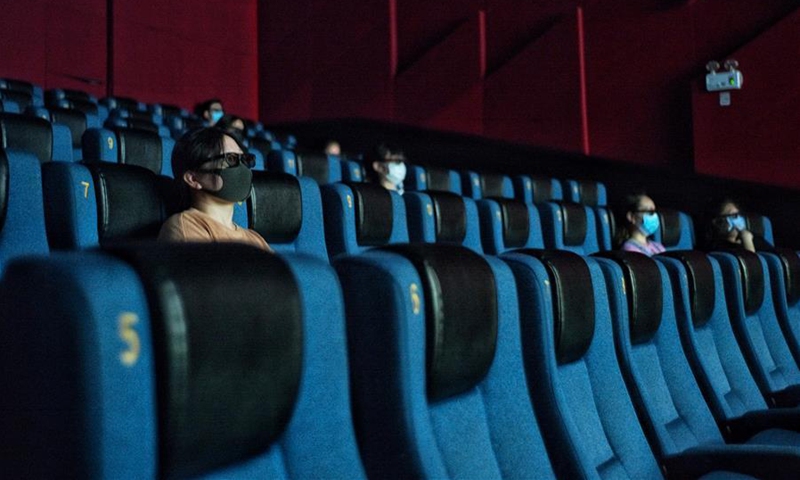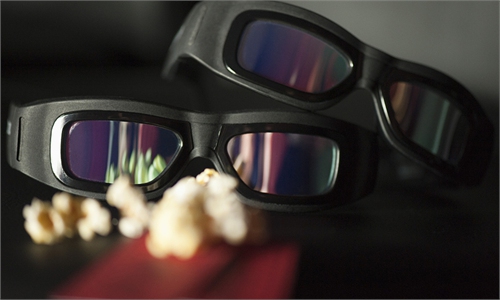Chinese cinemas' pricier ticket categories 'not acceptable'

People watch a movie at the Capital Cinema (Xidan branch) in Beijing, capital of China, July 24, 2020. Part of cinemas in Beijing resumed operations on Friday with effective epidemic prevention measures in place. Photo: Xinhua
Prices in Beijing cinemas for Fast and Furious 9 (F9) IMAX "golden seats" have triggered a discussion about a trend of Chinese cinemas increasing ticket prices for different seat locations, and most netizens seem to be unhappy about it.
According to Chinese film ticketing platform Taopiaopiao, the "ticket classification" of UME theaters in Beijing is showing differences of 5 yuan, 10 yuan and 20 yuan between normal seats, and the IMAX tickets cost a further 20 yuan extra.
Offering different categories of tickets is a new strategy adopted by some cinemas to increase revenue, and this marketing method began during the Chinese New Year holiday this year.
Xiao Fuqiu, a film critic based in Shanghai, told the Global Times that the price rises were partly a result of the recent COVID-19 pandemic, during which cinemas lost a lot of money. But the pricier tickets have caused complaints among Chinese moviegoers.
"I could accept tickets costing less than 100 yuan, and only those films with some rich visual effects could attract me to spend more on the golden seats," Lily Li, a 29-year-old woman from Chongqing, told the Global Times on Wednesday.
"It is understandable that the cinemas want to increase their revenue to make up for their losses during the shutdown amid the COVID-19 epidemic. But if they keep raising the prices, many of us moviegoers will not be willing to go," she added.
"It is worth a try for a film's premiere, but is not acceptable for more regular movie-watching," Han Rui, a 25-year-old college student based in South China's Yunnan Province, told the Global Times.
The number of cinemas in China has increased from 2,000 in 2010 to 11,453 in 2019, with an average annual compound growth rate of 21.40 percent.
Shi Wenxue, a film critic based in Beijing told the Global Times that the trend should be managed by consumer associations or price bureaus. "Cinemas should not raise their prices just because of viewers' high enthusiasm for watching movies," Shi said.
This is not just a case of "netizens complaining about a price increase," Shi noted. The essence is that consumers don't think some more ordinary films should have higher ticket prices. But if it is some new blockbuster, they would be more willing to pay for a better seat, according to Shi.
He gave the example of the ticket prices for Hollywood blockbuster Avatar, which reached hundreds of yuan when it was released in the Chinese mainland. But people still flowed into the cinemas to watch the lavishly produced science fiction film.
"Ticket pricing is purely market behavior and the best way is for it to be adjusted through market supply and demand," Xiao said.




